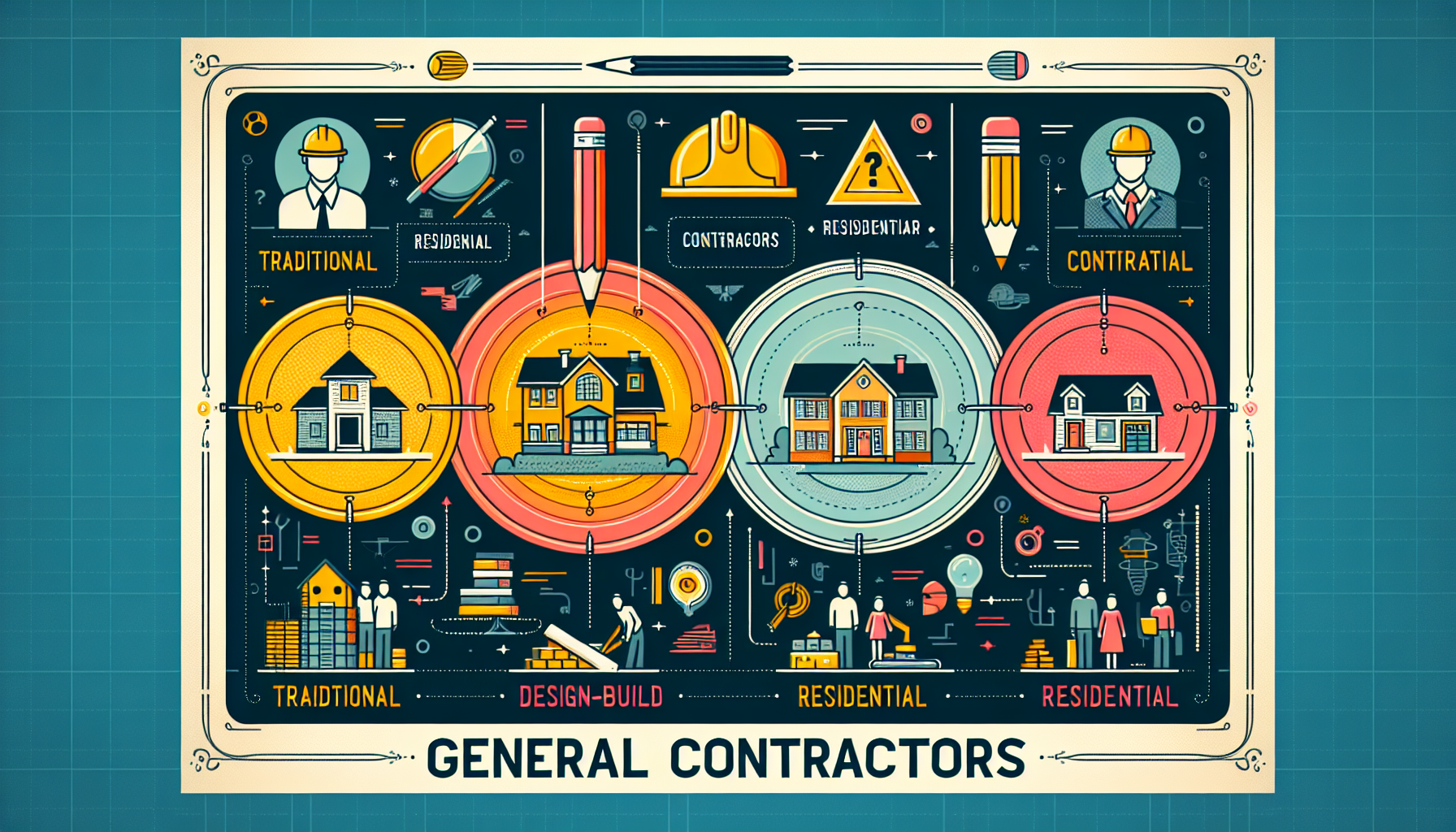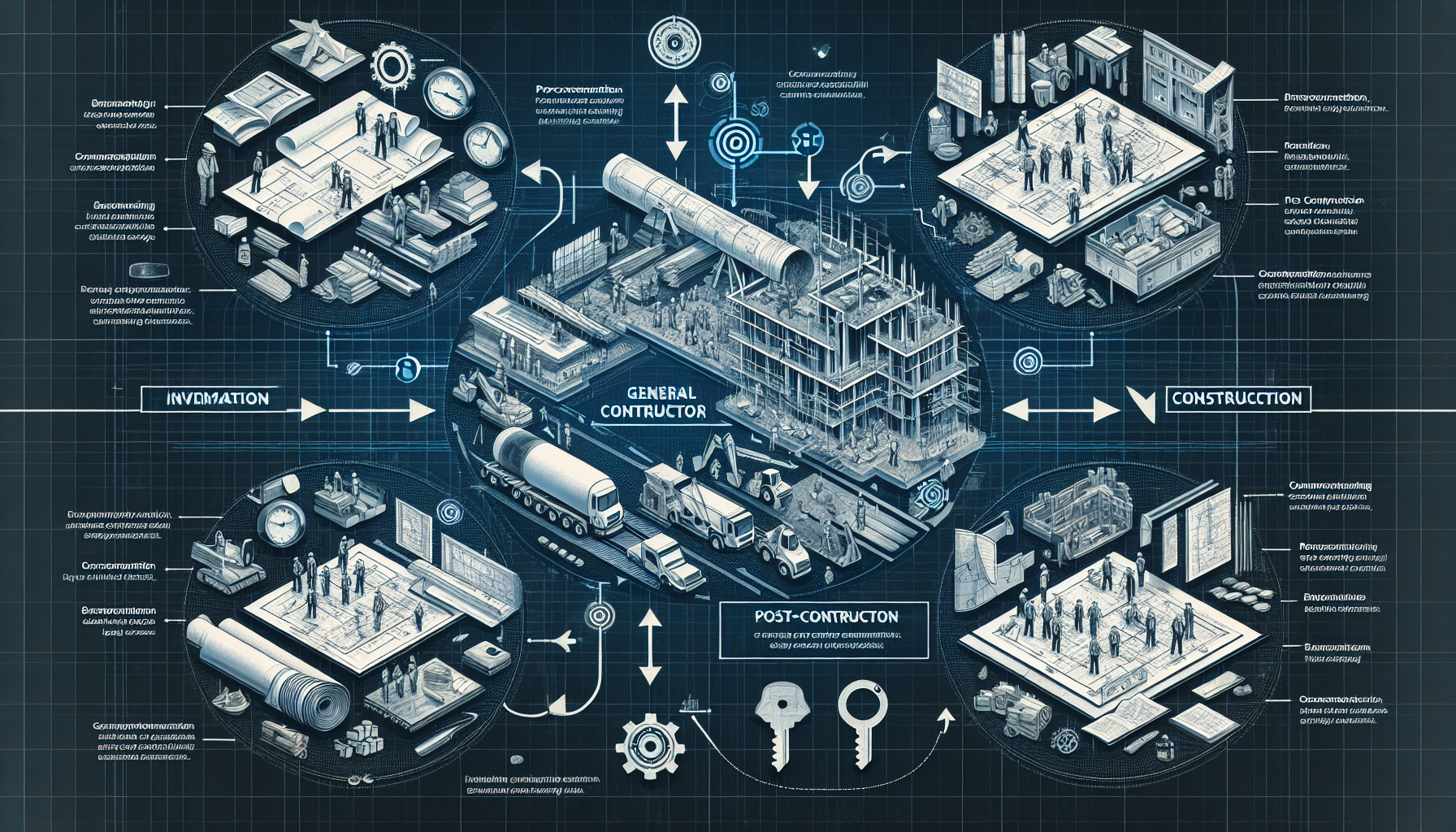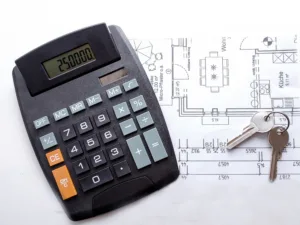This article will elucidate the role of a general contractor, who is responsible for managing construction projects from inception to completion. The general contractor’s responsibilities include organizing various trades, overseeing schedules, and maintaining the smooth operation of construction work. If you seek clarity on what a general contractor does and their significance within the industry, this exposition will provide that insight.
Table of Contents
Key Takeaways
General contractors are essential for managing construction projects, overseeing all phases from planning to completion, and ensuring compliance with regulations.
There are two primary types of general contractors: traditional, who follow architect plans, and design-build, who handle both design and execution, offering greater project cohesion.
Key qualities of a successful general contractor include professionalism, problem-solving abilities, and relevant experience, all of which contribute to effective project management.
1. Understanding General Contractors

General contractors are the pivotal figures in the construction industry, overseeing projects from start to finish. These contractors serve as the central coordinator for property owners, meticulously organizing and guiding every element of a construction project through execution by associated general contractors and other construction companies, managing the entire construction process.
Distinguished by their exceptional vision and mission, successful general contractors manage with precision across the entire span of the process. Their expertise ensures that each project they handle is brought to completion seamlessly and effectively.
Definition of a General Contractor
A general contractor is a specialist tasked with overseeing construction projects that encompass several trades. A licensed general contractor, in particular, requires significant experience and responsibility, managing projects, securing necessary permits, and handling workers’ compensation and liability insurance. This type of contractor manages the entire process, including initial planning and securing required permits, as well as orchestrating and supervising various subcontractors during the project.
Acting as an essential intermediary between the client and the subcontractors, general contractors diligently oversee every aspect of construction. Their role becomes particularly indispensable in intricate tasks that require extensive planning, coordination, and skillful execution.
Key Responsibilities
General contractors shoulder a wide array of duties that encompass tasks like obtaining necessary permits, supervising on-site work, and addressing problems encountered throughout the construction process. A general contractor’s license is often required, which involves meeting specific requirements such as age, education, experience, and passing an exam. It is essential for them to comply with building codes and regulations to prevent legal issues and guarantee safety.
In managing every stage of the construction projects, general contractors are integral in ensuring that each part of the building process is executed efficiently, keeping it within budgetary constraints and time schedules for successful completion.
2. Types of General Contractors

General contractors are classified according to their specific roles and expertise within construction projects. We will explore the two main categories: traditional general contractors and design-build general contractors in this segment.
Understanding these differences aids property owners in choosing an appropriate contractor tailored to their unique requirements.
Traditional General Contractors
General contractors in the construction industry are responsible for implementing the designs and plans drafted by architects or designers, rigorously adhering to the specific details of each project. These contractors usually obtain their projects via a competitive bidding process where securing a contract often hinges on presenting the lowest bid, which underscores both cost-effectiveness and fidelity to established plans. Aspiring general contractors need to consider their business structure, competition strategies, and financial planning while also addressing legal and insurance aspects relevant to their contracting business.
Within the realm of commercial construction, those running contracting businesses tend to cultivate specialized skills tailored to particular types of projects. This specialization bolsters their proficiency and operational effectiveness in these areas.
Design-Build General Contractors
Contractors employing the design-build method manage both the design and construction stages of a project, leading to more unified project management. This approach can expedite the overall process of construction by minimizing delays between planning and implementation.
While contractors that use a design-build strategy may have higher initial costs compared to conventional contractors, their established connections with suppliers frequently lead to cost savings on materials and labor due to preferential pricing agreements.
3. General Contractor’s License and Certification Requirements
General contractors are mandated to adhere to local regulations and boost their trustworthiness by obtaining proper licensing and certification. The specifics of these licensing requirements can change greatly depending on the state and area, usually requiring that contractors undergo testing, secure insurance and bonding, as well as acquire a general contractor’s license throughout the course of the licensing process. Each state has its own state licensing board that regulates these requirements.
Typically essential for this line of work is an educational background or hands-on experience in building trades. It’s common for many contractors to possess either degrees in construction management or comparable practical field expertise.
State Licensing Boards
Regulatory bodies at the state level are crucial in managing the licensing standards for general contractors, with each state establishing its own unique set of criteria. As part of the license application process, aspiring contractors must typically present evidence of insurance and a thoroughly completed application form. Certain cases might also necessitate supplementary materials like financial records. Additionally, a financial statement, such as an Audited Financial Statement or Agreed-Upon Procedures Report, may be required to comply with AICPA standards.
Before attaining approval from these boards—which is usually granted on a bi-monthly basis for new submissions—applicants often have to demonstrate their knowledge within the industry by passing specialized exams.
Industry Certifications
While obtaining certifications can be voluntary, they substantially boost a general contractor’s trustworthiness and market advantage. Local building codes or state legislation may mandate them to confirm adherence to industry standards. Take Georgia for example. There, contractors employing three or more individuals are obligated to provide workers’ compensation insurance.
Certifications from respected bodies such as the American Institute of Constructors carry significant weight in the construction industry. Two noteworthy designations include the Certified Associate Constructor (CAC) and Certified Professional Constructor (CPC). Attaining these credentials typically involves an amalgamation of hands-on work experience, formal education, and successful completion of pertinent examinations.
4. Essential Qualities of a Good General Contractor

An adept general contractor is characterized by a set of essential attributes that encompass professionalism, the capability to resolve problems efficiently, and robust communication competencies. These qualities are vital in effectively overseeing construction projects and securing their successful completion.
Professionalism and Communication Skills
In the realm of general contracting, it’s essential to grasp client interaction, steer employee activities, and sustain transparent dialogue across all stages of the project. By doing so, both clients and team members remain in sync with the objectives of the project.
Adopting a culture that emphasizes regular and unambiguous communication is crucial for seamless operations and anticipatory resolution of issues—key components necessary for adeptly managing projects to fruition.
Problem-Solving Abilities
During construction projects, general contractors must confront unforeseen obstacles with a composed and concentrated manner. It is crucial for them to adopt an approach geared toward problem-solving in order to keep the project progressing smoothly. Employing imaginative strategies and utilizing checklists thoroughly are key tactics in managing all aspects of the issues that arise.
Experience and Passion
Practical knowledge gained through hands-on experience is indispensable for general contractors. It empowers them to oversee construction operations with proficiency and assists in identifying reliable subcontractors, which enhances the overall success of a project. Understanding how to become a general contractor involves gaining relevant experience and education in the construction field, acquiring necessary skills, and planning a career path.
Contractors who possess a profound passion for construction are driven to fulfill project goals and make necessary adjustments along the way. Their strong enthusiasm and dedication motivate them to strive relentlessly toward outstanding performance.
5. The Role of General Contractors in Construction Phases

Throughout every stage of a construction project, from pre-construction to the post-construction period, general contractors are pivotal in ensuring careful planning and execution. This leads to the successful fulfillment of each project phase.
Pre-Construction Phase
During the initial pre-construction stage, establishing a strong foundation through meticulous planning and coordination is pivotal for the success of any project. General contractors at this juncture devise strategic plans, obtain all required permits, and ensure that there’s efficient communication within the team to preempt any potential hold-ups. Residential contractors, specializing in various niches within the residential industry, play a crucial role in this phase by offering their expertise in single-family or multifamily developments.
For intricate projects like entire kitchen or bathroom renovations, this phase becomes particularly essential. It demands general contractors to synchronize multiple subcontractors effectively in order to guarantee seamless progress.
Active Construction Phase
During the construction phase, it’s the duty of general contractors to oversee that the project progresses according to plan, managing timelines and conforming to contractual terms. They are in charge of orchestrating subcontractors’ efforts to ensure seamless progress and address any complications that emerge.
It is also essential for these contractors to maintain strict quality standards while ensuring the project adheres closely to its scheduled completion dates during this critical stage.
Post-Construction Phase
General contractors carry out final examinations following the completion of construction to verify adherence to all project requirements. They oversee the resolution of any remaining tasks on a punch list, guaranteeing that the project meets established standards.
Ensuring client contentment and achieving success in the construction endeavor hinges upon this critical phase of the construction process.
6. Financial Aspects of Hiring a General Contractor

Engaging a general contractor comes with different monetary aspects to consider, such as their charging methods and the cost-reduction advantages they contribute to a project. Thanks to their proficiency, projects are executed within set timeframes and according to stipulated guidelines, leading to savings through efficient management of resources and project oversight.
Fee Structures
Various payment arrangements are employed by general contractors, which include hourly wages to set charges determined by the complexity of the project. It is usual for them to adopt practices such as calculating their fees as a percentage of total construction expenses, agreeing on a fixed price beforehand, or operating on a cost-plus basis. Hourly payments usually fall between $50 and $150, with daily compensations stretching from $300 to $500.
It’s essential for general contractors to manage financial affairs concerning their projects. This involves overseeing monetary transactions made with subcontractors and maintaining accurate financial statements.
Cost-Saving Benefits
Hiring a general contractor may lead to substantial cost savings due to their efficient management and allocation of resources for the project. They are responsible for ensuring that tasks are completed both within budget and on schedule, thereby diminishing the chance of incurring unforeseen costs.
Specifically, design-build contractors offer clients reduced risks by serving as the sole accountable entity for a project. This centralization of responsibility tends to lower overall expenses while bolstering accountability throughout the completion process.
7. When to Hire a General Contractor
Engaging a general contractor is crucial for the effective completion of construction projects, especially those that are intricate and require thorough planning and organization. The knowledge possessed by these contractors guarantees adherence to local building codes and regulations, thereby averting possible legal complications.
Complex Projects
Construction endeavors can differ extensively in terms of their scale, range, and the amount of parties participating. Such projects necessitate an advanced grasp of different construction fields as well as meticulous planning and collaboration.
Essential to these construction ventures are general contractors who play a key role by administering numerous subcontractors, supervising schedules, and maintaining compliance with regulatory standards.
Compliance and Safety
A general contractor plays a critical role in upholding safety and integrity by ensuring that all aspects of the construction process comply with local building codes and safety regulations. This adherence is essential not only for minimizing legal risks, but also for guaranteeing the overall safety and structural soundness of the building project.
8. Summary
General contractors play a vital role in overseeing construction projects, ensuring they are finished efficiently, safely, and within the allocated budget. Their professional expertise and adeptness at solving problems are crucial for managing these projects from inception to completion. Given their importance in steering such undertakings toward success, engaging a general contractor is considered a prudent decision for any construction project.
9. Frequently Asked Questions
What is a general contractor and how to become a general contractor?
A crucial figure in the realm of construction, the general contractor takes on a pivotal role by managing and supervising various construction projects. This professional coordinates with subcontractors to guarantee that project deadlines are met while staying within budgetary limits. Professional organizations offer apprenticeship programs, mentorship opportunities, and networking resources that are essential for career success in construction, emphasizing the importance of connections in professional growth.
They play an essential part in ensuring the progression and quality adherence of any given construction project, maintaining strict control over its flow and standards.
What are the main responsibilities of a general contractor?
A general contractor is tasked with a range of critical duties, such as obtaining necessary permits, supervising work at the construction site, certifying adherence to building codes, addressing issues that arise during construction, and controlling both the timeline and financial plan for the project.
Such responsibilities are vital for achieving successful completion of a construction project.
What are the different types of general contractors?
In the realm of construction projects, general contractors can be categorized into two primary types. The first type includes traditional general contractors who execute plans created by an architect or designer. Meanwhile, design-build contractors not only oversee but also handle both the design and construction phases of a project.
Recognizing these differences is vital for elucidating the specific functions that general contractors will serve within your project.
Why is licensing important for general contractors?
Licensing plays a pivotal role for general contractors, confirming their compliance with local regulations, showcasing their proficiency, and guaranteeing that they are properly insured and bonded. This enhances not only their reputation, but also protects property owners from possible legal and financial liabilities.
When should I hire a general contractor?
It is advisable to engage a general contractor for intricate construction projects necessitating extensive coordination across various trades, meticulous planning, and adherence to local building codes.
Such contractors bring specialized knowledge that guarantees the project’s efficient management throughout its entire duration.
How do general contractors find subcontractors?
General contractors find subcontractors through several approaches that rely on their network, resources, and the specific needs of their projects. A common method is drawing on past relationships, where they hire subcontractors they’ve worked with before and trust. Professional connections made at industry events, trade shows, or through personal referrals also help them discover reliable subcontractors.
Additionally, many general contractors use online platforms and marketplaces like Angi or ConstructConnect, where they can browse and connect with subcontractors based on reviews and experience. When starting new projects, general contractors might issue a Request for Proposal (RFP) or Invitation to Bid (ITB), inviting subcontractors to submit bids for specific parts of the job. These requests are often distributed digitally or posted on construction bid boards.
Another popular method involves using directories from construction associations or unions, where subcontractors are vetted and listed based on their membership or union affiliation. Local and state contractor registries also serve as valuable resources, allowing contractors to search for subcontractors who are licensed and certified according to regional standards.
Word of mouth plays a significant role, too. General contractors often rely on recommendations from other industry professionals, knowing that reputation and proven quality of work are crucial in this field. If necessary, they might reach out directly to subcontractors they find through online searches or advertisements, especially when specialized skills are needed. Some contractors even use formal prequalification processes, ensuring subcontractors meet certain requirements, like financial stability or safety standards, before offering them a job.
How do general contractors get paid?
General contractors typically get paid through a combination of methods depending on the terms agreed upon in the contract with the client. Payments usually occur in stages throughout the project and are often tied to specific milestones or deliverables.
Initially, contractors often require a down payment or deposit before starting work. This upfront payment helps cover initial costs for labor, materials, and permits. The percentage for the deposit can vary but is typically between 10% and 30% of the total project cost, depending on the size and complexity of the job.
As the project progresses, general contractors usually receive progress payments or draws. These payments are made at predefined milestones, such as after completing the foundation, framing, electrical work, or other significant phases of the construction. Payment schedules are often detailed in the contract and may be based on completion of specific work, inspection approvals, or a percentage of overall project completion. For larger projects, general contractors may submit regular invoices to the client for work completed during that billing cycle.
In many cases, general contractors will hold back a portion of the total payment, often called retainage, until the project is fully completed. Retainage is typically around 5% to 10% of the contract value and serves as a form of security for the client to ensure that all work is finished according to the agreed standards. Once the project is complete and final inspections have been passed, the general contractor submits the final invoice, which includes the remaining balance along with the retainage amount.
Some general contractors also receive payments through cost-plus contracts, where they are paid for the actual cost of the work plus a predetermined fee or percentage. This type of payment structure is common in projects with uncertain costs or complex designs, as it allows for more flexibility in adjusting costs as the project evolves.
General contractors can also get paid on lump-sum contracts, where they agree to complete the entire project for a fixed price. In this case, payments are made according to the contract schedule, with the final payment issued upon project completion. Regardless of the payment structure, general contractors must manage cash flow carefully to ensure they can pay subcontractors and suppliers while keeping the project on track.
About the Author

Taavi Kaiv
Taavi Kaiv is a construction specialist with over ten years of experience in the construction industry. Taavi is an accomplished construction project manager with many successful projects that have been completed under his guidance. Taavi holds a master’s degree in construction management from the Tallinn University of Technology. View profile






